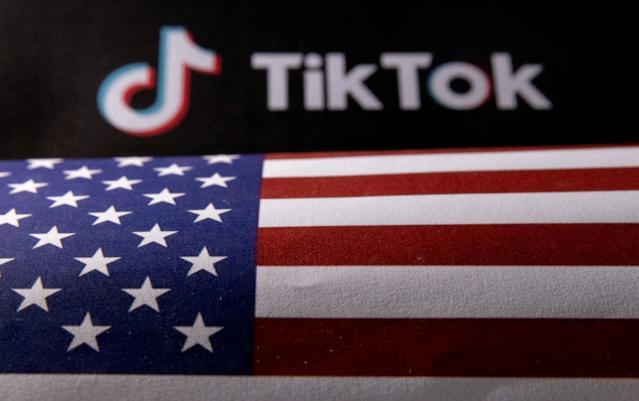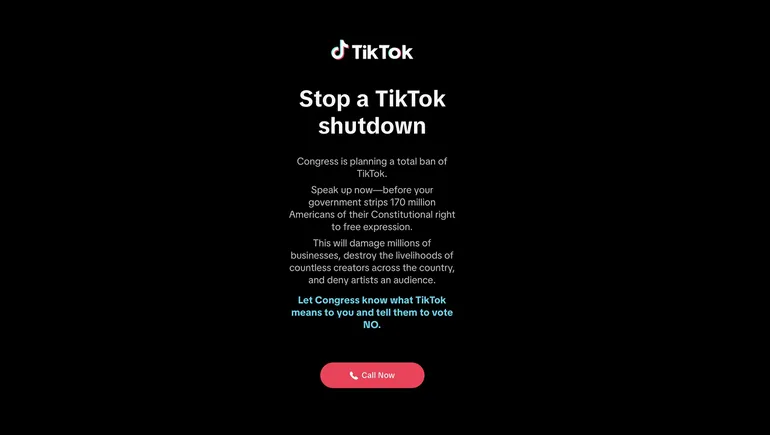TikTok is once again urging its U.S. users to advocate for its cause amidst the latest efforts by U.S. lawmakers to prohibit the app’s operations.
This week, a bipartisan group of legislators introduced a bill in the House of Representatives, proposing measures that would compel ByteDance, TikTok’s parent company, to sell the platform to U.S. interests or face a complete ban in the country.
The motivation behind this move revolves around apprehensions regarding TikTok’s alleged sharing of U.S. user data with the Chinese government, posing a persistent national security concern.
In response, TikTok has decried the proposed bill as a violation of the First Amendment. Moreover, the platform has actively rallied its U.S. user base through in-app notifications, facilitating direct communication with their respective House representatives.
This isn’t the first instance of TikTok mobilizing its community to oppose legislative actions. Last year, in response to the White House’s attempts to empower the President to impose restrictions on the app, TikTok dispatched a cadre of platform influencers to Washington, D.C., to stand in solidarity against the proposed measures.

TikTok Urges U.S. Users to Resist New Ban Proposal (Credits: Yahoo)
While these efforts may have influenced decisions thus far, cybersecurity experts continue to underscore the app’s potential risks, particularly its ties to the Chinese Communist Party (C.C.P.). Amidst ongoing global tensions, actions against TikTok remain subject to the Chinese government’s discretion.
Presently, U.S.-China relations appear relatively stable, dampening immediate prospects of stringent action against TikTok. However, any geopolitical shift could swiftly alter this landscape, potentially rendering TikTok a casualty of escalating tensions.
Recent criticisms from Chinese officials over U.S. trade sanctions against Chinese companies further complicate the situation, reigniting discussions surrounding a TikTok ban. Nevertheless, any such ban would likely invite retaliatory measures from the C.C.P., considering China’s significant position as the third-largest export market for the U.S.
Central to the debate surrounding TikTok is the question of security risks. While there’s no concrete evidence of data sharing with the C.C.P., concerns persist due to China’s cybersecurity laws mandating cooperation from Chinese-owned entities. This underlying apprehension not only underscores TikTok’s perceived security risks but also encapsulates broader implications for U.S.-China relations.
Ultimately, until TikTok undergoes a change in ownership or faces a ban, concerns surrounding its operations will persist. However, the extent to which governmental officials are swayed by the advocacy efforts of TikTok users remains uncertain.























